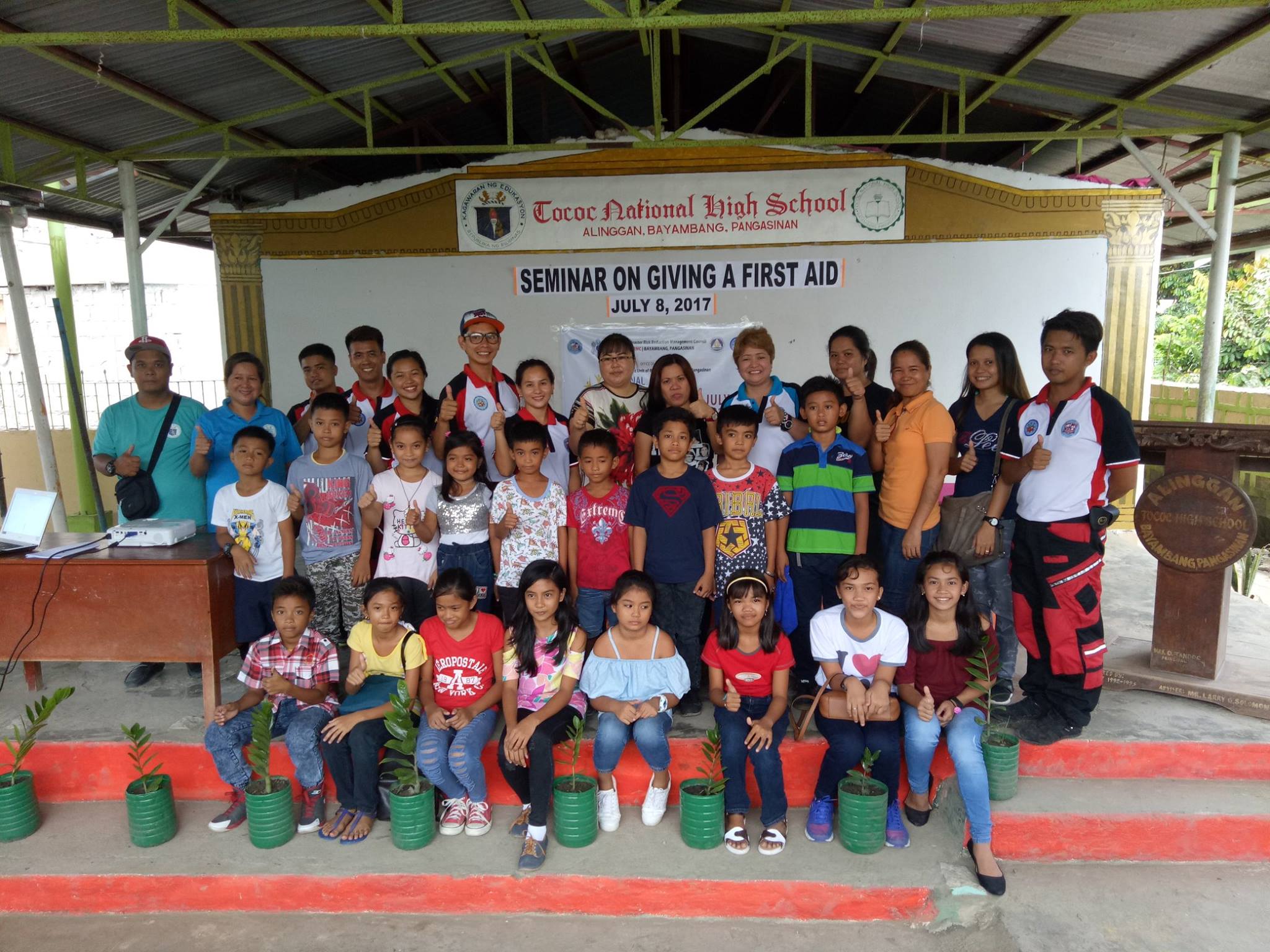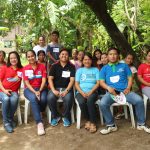In line with the celebration of July as National Disaster Resilience Month, MDRRMO Bayambang conducted a series of Basic First Aid Trainings on July 8, 18, 21 and 27 at different venues for students and teachers of public and private elementary and secondary schools in the first and second districts.
In July 8 and 21, it was held in Tococ National High School; in July 17 Bayambang Central School; in July 18 Wawa Elementary School; in July 19 Bayambang National High School (morning) and Saint Vincent Catholic School (afternoon); and in July 27 at the Conference Room of MDRRMO.
MDRRMO Head Genevieve U. Benebe said 100% of Bayambang’s public and private elementary and high schools were covered. All in all, there were 1,071 participants who graduated in the program, she added.
The training series focused on informing the audience about what they could do in case they are placed in a situation which requires first aid, such as burns, fractures, nosebleeds and bad falls.
Two common first aid practices were debunked. Burns, they were told, could be treated by placing the affected area under running water or in the refrigerator instead of rubbing salt on them. They were also taught that, when they experience nosebleed, they should look down, not up, and pinch their nose to stop the bleeding.
[smartslider3 slider=222]
They were also advised that an arm fracture should be handled with utmost care by placing a strong support under it and making sure that it is in a straight position.
Critical situations can sometimes appear in the most unexpected places, which is why it is important to equip these students with the knowledge of first aid. Now they know that in case they encounter a person who loses his or her consciousness, they should immediately ask who that person is with before calling the emergency number, and that they should make sure that a person who just had a bad fall is relaxed while he is being asked about his condition.
What’s different from these trainings, Benebe said, is that the students were capacitated for the first time (including those in Grade 4, 5, and 6), easing the burden from the teachers who used to assume the responsibility all by themselves.
Benebe wrapped up that talk by saying that there are three most important things to remember in case of an emergency: 1. Alleviate suffering; 2. Prevent further injury; and 3. Prolong life.
The audience consistently showed enthusiasm in learning about the simple tricks they learned that could help ease someone’s pain or even save lives.
(Photos courtesy of MDRRMO)




 Executive Orders
Executive Orders Ordinances
Ordinances Bids and Awards
Bids and Awards